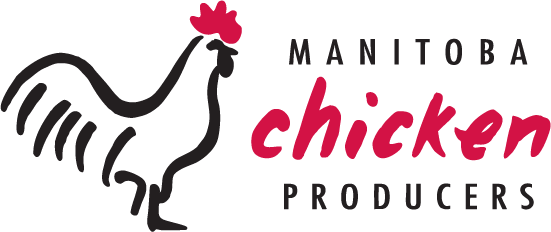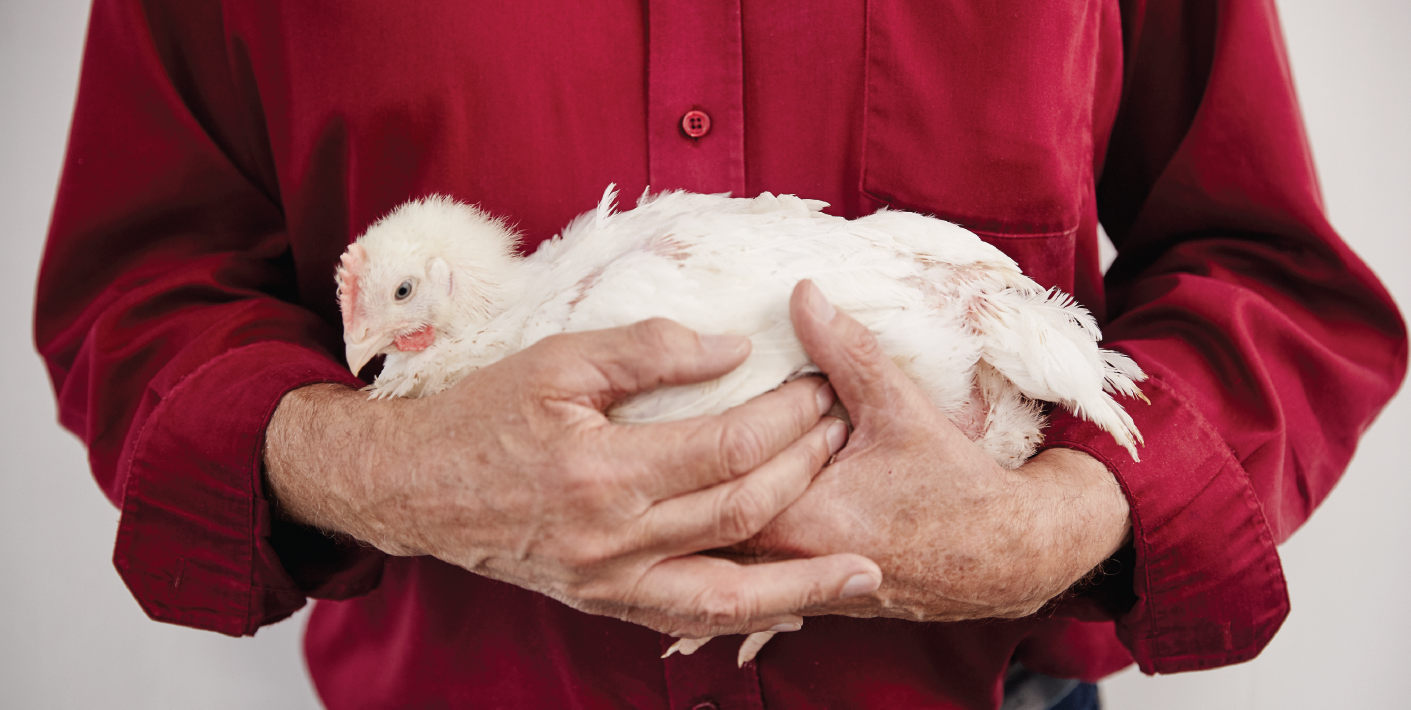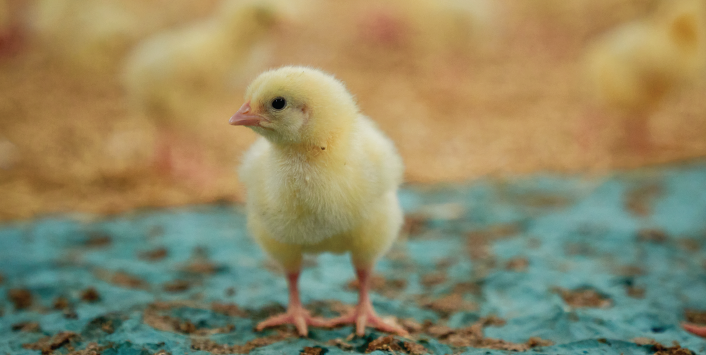Entering Our Industry
Raising broiler chickens for meat and broiler breeder chickens for hatching (fertilized) eggs is regulated by Manitoba Chicken Producers (MCP) as part of Canada’s supply-managed farming system. A quota from Manitoba Chicken Producers is required. The minimum broiler quota is 30,000 kg per flock (usually 7 flocks each year), the minimum broiler breeder quota is 7,000 hens and the minimum Annual Speciality Quota is 10,000 kg per year.
These quotas are owned by Manitoba Chicken Producers (MCP).
If you are allocated a quota by MCP, you are granted the right to raise that quota, but you don’t own it.
Ways to obtain quota:
- Purchase an existing registered farm and request a basic allotment quota transfer
- Participate in a basic allotment quota retirement exchange
- Participate in a basic allotment quota new entrant program
- Apply under the Annual Speciality Quota program
1. Purchase an existing registered farm and request a basic allotment quota transfer
Known as a complete farm sale, this happens when a broiler or hatching egg quota holder decides to retire from farming and sells the land, buildings, and equipment used for raising chickens or broiler breeders. Once an offer to purchase has been made, the buyer and seller must apply to MCP for approval to transfer the quota registration to the buyer. The application and approval process takes a minimum of 2-3 months and preliminary approval must be obtained from MCP before the buyer takes possession of the farm.
The buyer must commit to raise chickens or broiler breeders at that location for a minimum of 5 years. If you are interested in buying an existing broiler or broiler breeder farm, contact a farm real estate agent to see if there are any farms available. The majority of broiler and broiler breeder farms are located in the southeast corner of Manitoba. Manitoba Chicken Producers does not keep a list of farms for sale.
2. Participate in a basic allotment quota retirement exchange
The Quota Retirement Exchange lets quota holders retire or downsize their farm without selling their land, buildings, and equipment. A quota holder can offer some or all their quota allotment on the Exchange. The minimum amount of quota allotment the public can bid on is 30,000 kg for broilers or 7000 hens for broiler breeders. Quota allotments below the minimums are not open for public bidding.
You do not need to own land or a suitable barn to submit a bid on the Exchange, but you must be prepared to purchase land in Manitoba, build or renovate a barn, and buy the equipment required to raise chickens or broiler breeders. The cost of your bid does not include any costs associated with land, buildings, or equipment. Successful bidders must commit to raising the quota for a minimum of 5 years.
Quota Exchanges are not scheduled — they only happen when MCP receives an offer. If you are a Manitoba resident and would like to be notified about Exchanges that are open to the public, send an email with your name, email address, and mailing address. The Notification List does not automatically renew; you will receive an email every February asking if you want to remain on the list.
Past Broiler Quota Exchanges and Broiler Breeder Hatching Egg Quota Exchange
3. Participate in a basic allotment quota new entrant program
Manitoba Chicken Producers periodically provides opportunities for new producers to enter the industry. These program opportunities are not scheduled. The last two opportunities were announced in 2014 and 2017. If you wish to be notified of an upcoming opportunity, contact the Manitoba Chicken Producers office to be added to the Notification List.
4. Apply under the Annual Speciality Quota program
The Annual Speciality Quota Program focuses on smaller or specialized markets that are not currently being supplied by registered chicken producers. The program covers speciality chicken breeds, unique weight categories, specialized production methods (e.g. certified organic, pasture-raised) and chickens slaughtered in accordance with religious practices. An Annual Speciality Quota is allocated for one calendar year at a time, and the quota allotments are for a minimum of 10,000 kg per year. Read more.



